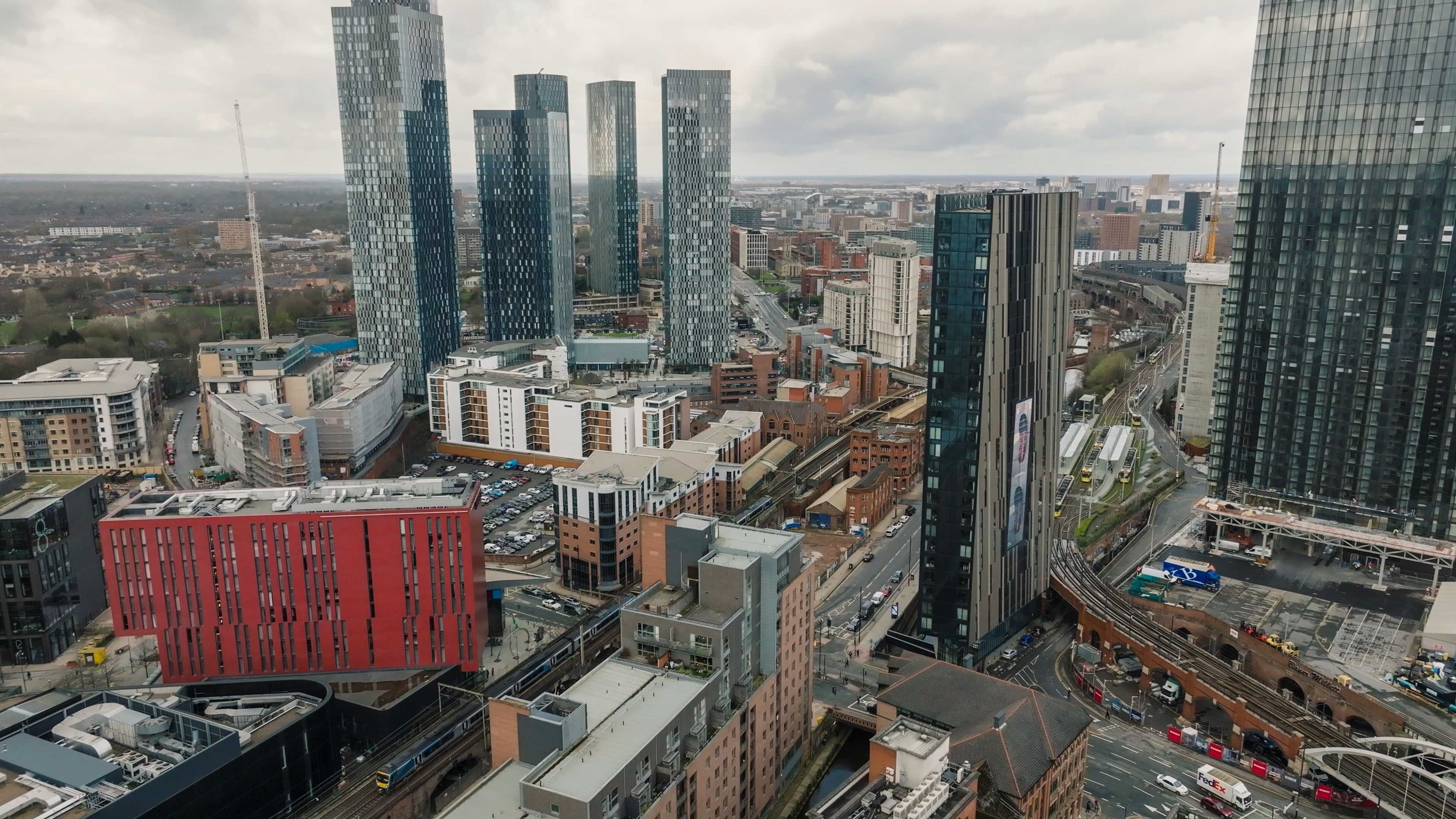7 key property investment tips for beginners

Buying your first investment property is a big step and there are lots of factors to consider. For beginners, it can seem like a complex world – but investing in property in 2023 could not be easier, no matter how much experience you have.
Are you a property investment beginner looking for guidance? Then read on to find out everything you need to know to get started.
Define your investment objectives
What do you want to get out of investing? A portfolio designed to earn long-term capital growth will look very different from one that is designed to achieve the highest short-term rental income possible.
Some key questions to ask yourself are:
- How quickly do you need or want to see a return?
- How long do you intend to keep your properties for before exiting?
- What do you need the money for? A future retirement? Some extra cash?
- Do you want long-term or short-term lets?
- What kind of property do you want? Single apartments? HMOs?
Want to learn more about how to build your portfolio? Click here for our guide >>
How to buy an investment property
Investing in property is largely similar to buying any a property to live in. Likewise, you will have to understand many of the same things such as your available finances. Once you know what you can afford and what you want, it is time to begin looking around for a professional property agent to assist you.
An agent can assist you at all stages of the purchase, from the initial property selection through the legal process, the purchase and beyond. They will be able to answer any question you have and point you in the right direction if you need additional services.
Once you have decided on a property, you will need to pay the deposit initially, followed by the balance as per the agreed payment terms. Once you have done that you will be the legal owner of the property.
What are the different types of investment property?
Property investment in the UK can come in many forms. The most common types of property are:
Off-plan properties
Buying off-plan property means that you are purchasing before it is completed. This can be done from the planning stage onwards. It is often possible to buy off-plan at a below-market rate, and doing so means you will start earning capital appreciation before the building is even complete.
Similarly, it is a way to secure a low price now but not have to pay the higher financing fees that we are currently experiencing thanks to rising interest and mortgage rates. Buying off-plan is a way to get the best of all worlds and a great option for new property investors.
Completed residential property
Buying a completed property means you can begin renting it straight away, but it may have additional costs attached. As it is not a new build, you might end up having to pay for repairs, structural defects and more.
Related to this, a completed property may not meet the latest Energy Performance Certificate (EPC) ratings, and therefore will need remedial works to bring it up to those standards before it can be let.
Student property
Student property is an interesting alternative investment which can add diversity to your portfolio. Tenant demand is generally growing in most major university towns and cities, and you can rely on a new wave of tenants each year. However, you will only be able to rent it out during term time, and the lower entry price is often offset by lower rents.
Short-term let property
This is a nice middle ground which will allow you to charge higher rents than a traditional residential property. However, the risk is that the property may not be filled 100% of the time, and that more maintenance may be required.
The main risks of this property type can be mitigated by purchasing in an area with high tourist numbers, a lot of international students and modern industries which attract business travellers. Developments in cities like York fit these criteria perfectly.
Tax liabilities
You should make sure to consider your potential tax liabilities before investing in property. We highly recommend that you talk to an independent financial advisor first. In the meantime, the following is a short walkthrough of the taxation you may incur as a landlord – though we will emphasise again that it may not be comprehensive for your individual situation.
Stamp Duty Land Tax (SDLT)
Stamp Duty Land Tax (SDLT) applies to all residential property purchases in England and Northern Ireland worth more than £125,000. In addition to this, a 3% surcharge is payable by all investors purchasing a property in England or Northern Ireland, and an additional 2% levy is payable by overseas investors.
SDLT rates as of February 2023 are as follows, and must be paid within 30 days of completing your purchase:
|
Value of property |
Normal rate |
Additional rate |
Overseas rate |
|
£40,000 - £125,000 |
0% |
3% |
5% |
|
£125,001 - £250,000 |
2% |
5% |
7% |
|
£250,001 - £925,000 |
5% |
8% |
10% |
|
£925,001 - £1,500,000 |
10% |
13% |
15% |
|
£1,500,001 or more |
12% |
15% |
17% |
Income Tax
Income tax must be paid on your rental income on a sliding scale from a basic 20% to a maximum of 45%.
Capital Gains Tax (CGT)
Capital Gains Tax (CGT) applies when you sell your property. It is a percentage of the profit made over the original value.
It is charged to all sellers making a profit, including overseas owners, and the rate differs based on whether you are an individual (either 18% or 28% depending on the capital gain made by the sale), working through a trust (28% for trustees) or a company (20%).
Inheritance Tax
Inheritance Tax is a paid the value of any property passed on, unless:
- The value of your estate is below £325,000, OR
- Everything over £325,000 is left to your spouse, civil partner, a charity or a community amateur sports club
If neither of those criteria apply, your estate will be taxed at 40% on anything above the £325,000 , or anything above 36% if you leave at least 10% of the value to a charity after any other deductions in your will.
Council Tax
Council Tax is normally payable by the tenant, however if your property is ever empty, you will need to cover the cost until the next tenant moves in. The cost will vary depending on the local council and property type.
How to determine ROI and yields
Working out your potential return on investment is a key part of any property investment. Much of this will be based on the rental yield. This is the annual rental income expressed as a percentage of the original purchase price, and is a good guide to whether a property will meet your investment goals.
If you are investing in the medium- or long-term, this rental yield will be the main area of focus. Analysis shows that they are expected to grow strongly across the country over the rest of the decade.
However, if you are looking to invest in the short-term, you might be more interested in capital appreciation and look for an area where house prices are rising.
There is no way to say exactly what capital appreciation you will earn, but you can look at local market predictions for an idea. Somewhere like Manchester with a growing population and a shortage of homes constantly sees predictions of house price growth in excess of the national average, for example.
Where is the best location to invest in property in 2023?
Finding the right place to invest is one of the most important steps for any beginner. You want to look for the following factors:
- High tenant demand
- Low supply of housing
- Economic growth
- Population growth
- Growing universities
- Major regeneration plans
- Major government spending programmes
- Infrastructure improvements
Using Manchester as an example we can see what happens when all these factors are in place. Rents in the city grew fast in 2022, and all projections show that this is expected to continue over the next five-year period.
The latest data from Alliance City Living demonstrates how strong the Manchester rental market continues to be a great place to invest. Read more about the city’s prospects and predictions for future rental growth by clicking here >>
Property lettings and management
Investing in property is a business decision first and foremost. Like any business, it will require a lot of work, and one of the main areas this applies to is letting and managing the property.
There is no hiding that this process is both time consuming and stressful. Marketing the property, carrying out viewings, keeping on top of the paperwork, understanding and meeting regulations, carrying out inspections, arranging maintenance and more – all are tasks that you will encounter from day-to-day as a landlord.
For many investors, this is simply too much work and they choose instead to appoint a professional lettings and management agent to do it for them. For a small monthly fee based on the monthly rent, you can employ a professional lettings and management agency who will take care of everything listed above. In this way, you can get all the benefits of being a landlord with none of the hassle.
Alliance City Living, is a good example of a company who do all this and more. They take care of hundreds of happy investors and have fully let many of our buildings, making them the perfect option for any investor purchasing an Alliance Investments property.
Thank you for reading our guide to property investment for beginners in the UK. If you would like more information or to find out about our available properties, please get in touch with the team by clicking here >>
Continue Reading


















